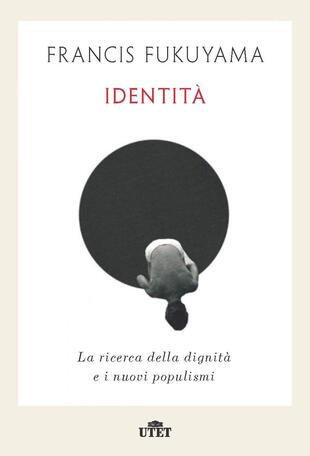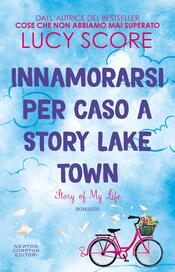Sinossi
Il referendum su Brexit, l'elezione di Donald Trump, l'ascesa dei movimenti populisti in Europa e in Italia. Istituzioni e meccanismi che hanno regolato la politica e il dibattito pubblico per decenni sembrano sempre più pericolanti, se non già in macerie. Cosa è successo? E cosa ci aspetta? Francis Fukuyama ha scritto il libro che ha fatto il punto sulla fine del Novecento e sul trionfo del modello capitalistico e democratico: "La fine della storia e l'ultimo uomo". Oggi torna con una diagnosi che completa quel quadro e spiega come mai improvvisamente quell'ordine sembra così in crisi all'alba del nuovo millennio. Utilizzando concetti di grande tradizione filosofica e calandoli nei più attuali scenari sociopolitici, Fukuyama è in grado di mettere in fila una serie di fenomeni che sembrano scollegati e fornire una chiave di lettura del nostro presente: da dove viene la forza apparentemente invincibile del populismo? È davvero un fenomeno solo negativo? Perché i social media sono pieni di odio e aggressività? Come mai le classi sociali meno abbienti sembrano ormai del tutto disinteressate a politiche di sinistra? Come convivono nelle nostre società movimenti sempre più avanzati di difesa dei diritti delle minoranze e pulsioni autoritarie? Le risposte di Fukuyama a queste domande indicano una strada da percorrere, al di là della condanna degli estremismi o delle lamentazioni sulla decadenza della politica. E al centro di tutto c'è l'identità, il bisogno di vedersi riconosciuta la propria identità - un bisogno che può portare ad affidarsi a tradizioni inventate, nazionalismi di ritorno, leader carismatici e populisti: «L'affermarsi della politica identitaria è una delle maggiori minacce che le democrazie si trovano ad affrontare, e se non riusciremo a ritornare a visioni più universali della dignità umana, ci condanneremo a un conflitto senza fine». Un libro per capire il presente e immaginare il futuro. Con e-book scaricabile fino al 30 giugno 2019.
- ISBN:
- Casa Editrice:
- Pagine: 236
- Data di uscita: 26-02-2019
Recensioni
This is required reading, because with this book, Fukuyama is clearly on to something. At the core, he discusses how we can overcome political polarization and strenghten our democratic systems. In order to grasp the underlying current that drives today's discussions and gave rise to Trumpism ( "With Leggi tutto
The modern concept of identity unites three different phenomena. The first is thymos, a universal aspect of human personality that craves recognition. The second is the distinction between the inner and the outer self, and the raising of the moral valuation of the inner self over outer society. T
Let me cut to the quick, there are three reasons why I felt this book was inadequate: 1) there was little new in it, 2) the author wrongly argues both sides are to blame by appealing to false dichotomies and false framing and 3) his solutions provided would only exasperate the real problem and not m Leggi tutto
На жаль, щодо цієї книги в мене були доволі високі очікування. І вони, як свідчить моя оцінка, не справдилися. З одного боку, дуже добре, що Фукуяма написав популярну книгу про ідентичність. З іншого, рівень спрощень , як на мене, зависокий . Після дилогії Витоки політичного порядку та Політичний поря Leggi tutto
I keep telling myself not to read books by privileged rich men about the problems of our world, then I do exactly that. I regret it! There are interesting concepts here, some are somewhat useful in the debate on identity and some just drown in Fukuyama's desire to justify himself. Let me elaborate. T Leggi tutto
3.5 After hearing about the book on NPR my husband suggested I read Identity: The Demand for Dignity and the Politics of Resentment by Frances Fukuyama. One thing I appreciated about this book is how the author presents his arguments, explains them, and before he moves on restates his case to that po Leggi tutto
This new book by Francis Fukuyama about the hot issue in the US and EU politics today – identity. He doesn’t take neither left nor right side in the debate, but shows that the debate itself maybe out of focus. He starts with Plato 's The Republic and introduces concept of thymos - third part of the so Leggi tutto
Citazioni
Al momento non ci sono citazioni, inserisci tu la prima!

























